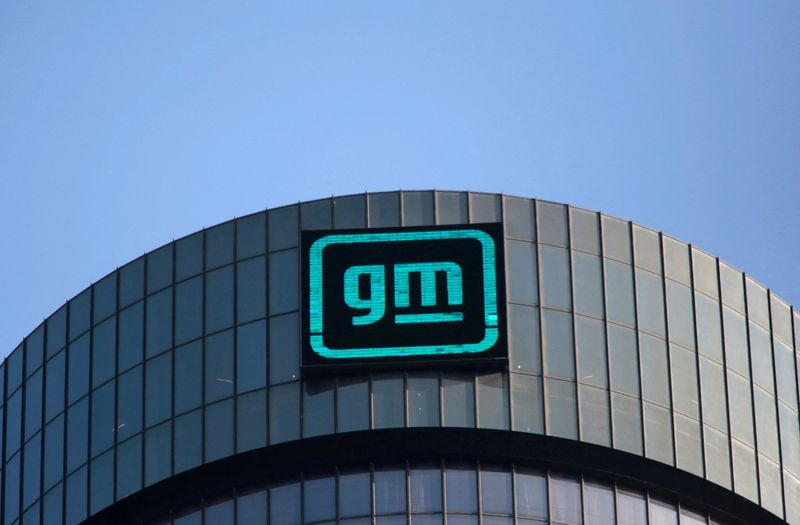By Stephen Nellis and Joseph White
(Reuters) - Major automakers like General Motors Co (NYSE:GM), Ford Motor (NYSE:F) Co and Volvo Cars deepened ties with key technology partners this week to gird for the fight against electric car challenger Tesla (NASDAQ:TSLA) Inc and Apple Inc (NASDAQ:AAPL) as it revs up to enter the market.
Three chip firms - Intel Corp (NASDAQ:INTC)'s Mobileye (F:0ME), Qualcomm (NASDAQ:QCOM) Inc and Nvidia (NASDAQ:NVDA) Corp - have emerged from a raft of announcements at the Consumer Electronics Show in Las Vegas as the leaders in locking down the brains of self-driving cars for the next decade.
The deals involve consolidating scores of older, slower chips into more powerful centralized computers. But to win them, the chip firms have had to consent to letting automakers control key parts of the technology.
Reuters has previously reported that Apple plans an electric car. Bloomberg reported last year that the iPhone maker is aiming for full self-driving capabilities as early as 2025.
For automakers facing Apple and Tesla, the stakes are high. In addition to electrifying their models, automakers are essentially designing computers with increasing self-driving capabilities.
That means a big opportunity for automakers to make money off software and services in cars long after vehicles roll off a dealer's lot, but only if they can keep the customer relationships and data for themselves, the way that Tesla and Apple do.
Automakers "that haven't been the pioneers are finally realizing they're going to be left in the dust if they don't change their approach," said Danny Shapiro, vice president, automotive for Nvidia, a maker of high-powered chips.
Nvidia this week announced deals to supply the electronic brains for future models from several Chinese electric vehicle startups, and is working with other automakers including Mercedes, Hyundai Motor Co, Volvo and Audi .
Control of technology and data are areas of tension between automakers and technology companies, Shapiro said. "Control and customization, and who owns the data?"
The answer is complex because of the staggering amount of technology required to make cars drive themselves.
These include computer vision algorithms to help cameras recognize pedestrians, sprawling high-definition maps of the world's roads, and "drive policy" software to make millisecond decisions about how the car should behave when confronted with the unexpected.
For chipmakers, this means they need to have every aspect of the technology ready, but be willing to let customers pick and choose.
Qualcomm Inc , for example, spent $4.5 billion last year to purchase Veoneer (NYSE:VNE) Inc to round out all the pieces of software needed to complement its self-driving car chips. But after winning its first major self-driving chip contract with GM this week, those software assets will not be included because GM has its own.
"Our software stack is all internally developed. So we're not taking their pieces," said Jason Ditman, chief engineer for GM's forthcoming "Ultra Cruise" hands-free driving product.
But for other carmakers, Qualcomm needs to have all the pieces of a self-driving system ready, said Nakul Duggal, senior vice president and general manager of automotive at the chip firm.
"Different automakers find themselves at different points of readiness," he said. "What is critical for the automaker is that they have to be able to build a relationship with the customer that they're trying to acquire."
A similar dynamic is at play in Mobileye's relationship with Ford, which was deepened this week. Mobileye used to deliver its camera, chip and self-driving software as an all-in-one product. Now Mobileye will start separating out some of its system's functions and allowing Ford to build its own technology on top of them.
"We provide all the outputs to Ford, and they'll run their own algorithms on top of our outputs," Mobileye Chief Executive Amnon Shashua told Reuters.
The chip companies have little choice but to be more flexible as they face significant competitors of their own.
Automakers had relied on three main suppliers for the simpler semiconductors that controlled combustion engines – Infineon (OTC:IFNNY), Renesas and NXP (NASDAQ:NXPI), said Phil Amsrud, a senior principal analyst with IHS Markit.

But the market of chip firms supplying high-powered computing to vehicle makers is comparatively crowded, including Chinese companies such as Huawei Technologies Co Ltd and computer vision company Ambarella (NASDAQ:AMBA) Inc moving into the auto sector.
"We're at a point where we might be getting too many suppliers," Amsrud said. "If you look at automotive traditionally there's never been more than a handful."